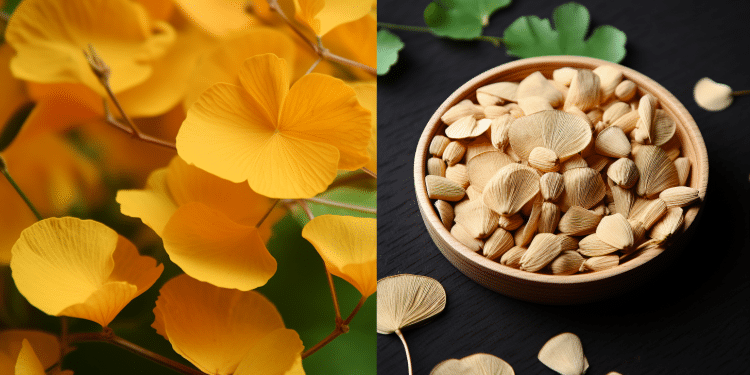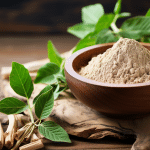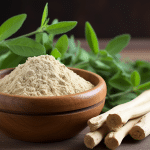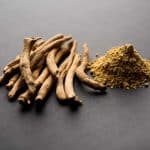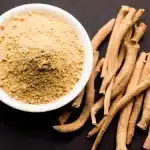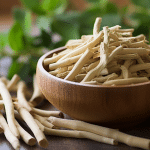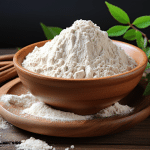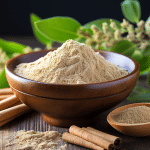Organic aswagandha, which contains 2.64 mg whitanolides, and Ginkgo biloba, which contains 24% flavonoid glycosides and 6% terpene lactones, counteracts effects of insomnia and stress, enhances circulation, focus, and memory. There are specific plants that have been used as a traditional medicine to treat many ailments for centuries, and many are still in continuous use today, as, thanks to technological innovations, they have been proven to offer a wide range of benefits for the body. Two such plants are Ashwagandha (Withania somnifera) and Ginkgo biloba, used throughout generations for a variety of treatments like relaxation, enhancing focus, improved testosterone production, or promoting blood circulation, which ultimately results in better fitness, much more energy, and an improved sense of wellbeing.
Can You Take Ashwagandha and Ginkgo Biloba Together?
Yes, you can take Ashwagandha and Ginkgo Biloba together. As long as you follow the recommended dosages of each herb you should have no issues. Although if you are worried about potential side effects, you can always start with smaller doses and increase over time once you are sure you are not having any adverse reactions. The common denominator among these supplements is the benefit of improving your mood and overall sense of wellbeing.
Overall, the many potential benefits associated with these compounds greatly outweigh potential negative side effects, which typically stem from improper dosing or exacerbation of pre-existing conditions. However, as with any supplement, special cautions must be taken when considering using these health products.
For instance, Ashwagandha should ideally not to be consumed while you are pregnant or breastfeeding. Furthermore, extracts from Ginkgo leaves are largely safe to use, but they can potentially cause certain headaches and skin irritations for people already susceptible to these ailments.
Ashwagandha
Ashwagandha is one of the elements that is often used in Ayurvedic medicine as a natural energetic, to the extent that it is called the “Indian Ginseng,” and which is capable of providing the balance between the energetic consumption and relaxation capacities, which is capable of improving rest and reduction in stress. Apart from this, it is also placed in the group of adaptogens, substances which enhance the resistance and adaptability of the body to various situations of physical and emotional stress to which we are exposed on a daily basis. In brief, Ashwagandha’s versatility provides us with several properties to the body, each more advantageous, like the regulation of your bodies hormones, reduction of stress through decreased cortisol levels and better relaxation prior to sleep, increased energy, or better muscular development, among others.
Ashwagandha is widely considered the Swiss army knife of the brain-healthy supplements world, offering its versatility and aiding a wide range of mental and physical restraining. The ancient medicinal herb is responsible for reducing anxiety, fighting depression, boosting fertility and testosterone in men, supporting muscle growth, and boosting general brain function, let’s dig into each of these benefits.
Ashwagandha is considered to be the natural anti-anxiety agent, widely available at health stores throughout the US. There are a few studies conducted which suggest that extracts from the Ashwagandha root will naturally lower your body’s level of cortisol, as too much cortisol has been linked to higher levels of anxiety. Ashwagandha is also helpful for fighting depression. Ashwagandha is an adaptogen, a plant which helps in the body to reduce the level of stress, and it has a positive impact on its users mood.
The herbs ability to reduce stress in the body also means it may help increase fertility among men. The natural compounds found in Ashwagandha support the body’s endocrine system, which is in turn a crucial component to a healthy reproductive system.
Ashwagandha has also been suggested to support muscle growth and recovery after periods of intensive exercise. It has the ability to reduce levels of cortisol, which is responsible for decreasing anabolic states necessary for efficient muscle growth. Ashwagandha is also thought to significantly enhance cognitive abilities and brain processing speeds, calming the mind allows for enhanced attention and a more sustained concentration.
Ginkgo Biloba
Ginkgo Biloba is one of the nootropics, substances which improve cognitive function and brain activity due to their promotion of increased production of various types of neurotransmitters, resulting in better memory and learning, increased activity of the brains cognitive functions and better focus, better relaxation, and reducing negative emotions like depression or anxiety. In addition, Ginkgo Biloba enhances blood circulation and acts as an antioxidant, fighting against cell oxidation and premature ageing caused by free radicals. Ginkgo Biloba is a tree that originates from China, which has been grown for thousands of years, and has been used for various purposes, including improving the performance of the brain of humans.
It is also the only surviving member of an ancient order of plants. Extracts are collected from the dried green leaves of the plant, it can be made as liquid extract, capsules, or tablets. The supplement is extremely effective for treating various health conditions, ranging from blood disorders to memory problems.
Ginkgo Biloba contains a number of powerful antioxidants, such as flavonoids and terpenoids, that are likely to be responsible for many of the health benefits it offers. Ginkgo Biloba is best known for its anti-inflammatory properties, along with its ability to enhance blood circulation and heart health. In ancient Chinese medicine, ginkgo seeds were used to open up energy channels in the bodys vital organ systems, including the lungs, brain, liver, and kidneys. Finally, ginkgo biloba is also thought to decrease symptoms of mental disorders and dementia; specifically, Ginkgo biloba improved the cognitive functions of patients who were suffering from dementia.
